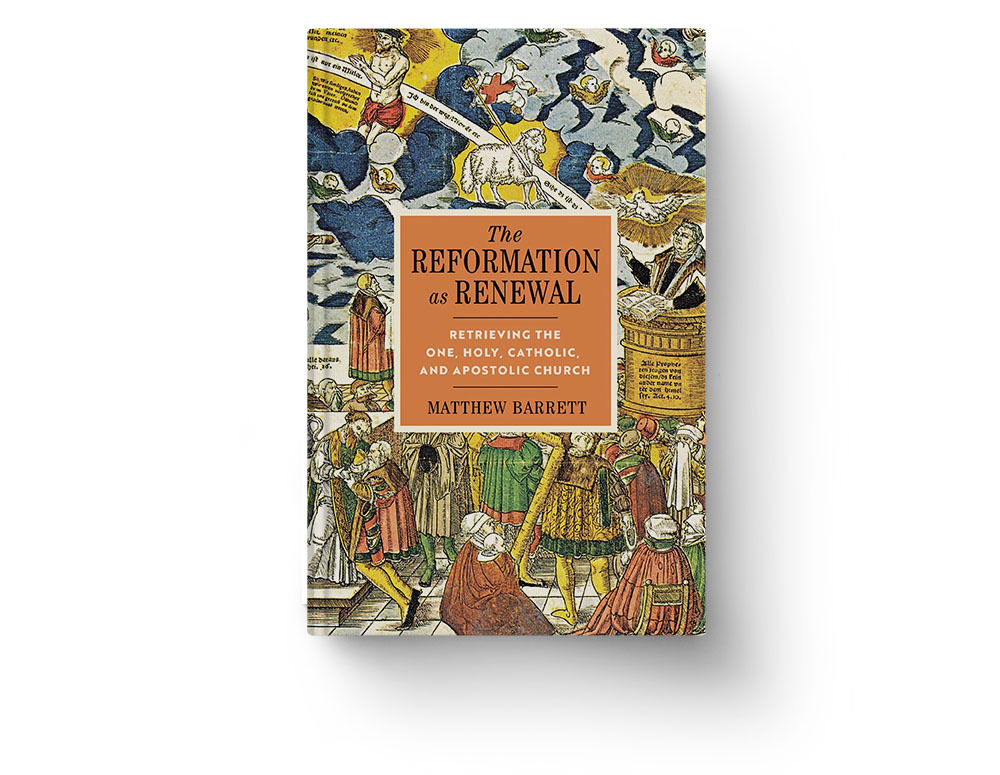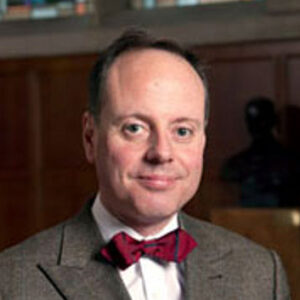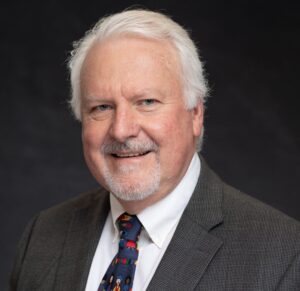
“If the Reformers’ own perception is considered, then the story of the Reformation is not a story of a rebellious departure from the church catholic but a story of renewal. The Reformation should then be defined not according to its critics but on its own terms, as a movement of catholicity. What follows is not an attempt to mine the church fathers or medieval theologians to determine if the Reformers were right, which itself is a different project. Rather, what follows is a fresh, intellectual and theological history of the Reformation that listens to discern if the Reformers themselves interpreted their reform as a renewal of catholicity.” ~ Matthew Barrett
The Hanover Review 3.1 brings together a group of leading theologians, philosophers, and historians for a symposium on Barrett’s celebrated volume, the Reformation as Renewal.
We believe this volume deserves rigorous and substantive engagement for several reasons. First, the issues addressed in the volume are important, and touch on pressing issues facing evangelical theology and the church. Second, the London Lyceum is committed to “retrieving the wisdom from analytic philosophy, the Baptist tradition, and classical Protestantism as confessed in the confessional documents of the Reformed tradition,” and as such, the thesis of the volume aligns with our own mission and values as a center committed to serious thinking for a serious church. Third, we believe that scholarship is carried out in community. Peer engagement is an essential component of academic theology, and interacting with scholars from across ecclesial and confessional traditions provides the opportunity to grow in virtues like charity, intellectual humility, and critical thinking.
For these reasons, the London Lyceum assembled a substantial lineup of widely respected scholars to participate in this symposium. As expected, a lively, rigorous, and productive discussion of the volume took place.
This symposium features online-only versions (linked individually below) alongside print and digital PDF versions in our journal The Hanover Review available for purchase (linked above). Only the official typeset journal versions should be cited in academic work.
- An Accidental Reformation?, by Richard Cross
- Duns Scotus, Classical Theist: A Vindication, by Thomas M. Ward
- On Matthew Barrett’s “The Reformation as Renewal: Retrieving the One, Holy, Catholic and Apostolic Church”, by Mickey L. Mattox
- “Reformation as Renewal:” Recatholicizing the Reformers by Manipulating Their Message?, by Peter Opitz
- Prolegomena to Any Future Account of Aquinas’s Augustinianism: A Response to Matthew Barrett, by Daniel W. Houck
- The Bishop of Rome hath no Jurisdiction in this Realm of England: The English Reformation and Foreign Jurisdiction, by Michael J. Lynch
- The Prophetic Role of the Protestant Reformation, by Jordan J. Ballor
- Contextualizing “Renewal:” An Examination of Matthew Barrett’s Historical Methodology, by Jonathan Baddley
- The Reception of Late Medieval Scholastic Thought in Early Modern Reformed Theology, Andreas J. Beck
Contributors

Richard Cross
Richard Cross (DPhil University of Oxford) is John A. O'Brien Professor of Philosophy at Notre Dame. He came to Notre Dame in 2007, having been a Fellow of Oriel College in the University of Oxford from 1993 to 2007. He specializes in medieval philosophy and theology, with a particular focus on Duns Scotus. He is currently at work on a multi-volume history of the metaphysics of Christology. A preliminary volume on Aquinas to Scotus appeared in 2002. Recently, he has published volumes include Communicatio Idiomatum: Reformation Christological Debates (Oxford University Press, 2019), Christology and Metaphysics in the Seventeenth Century (Oxford University Press, 2022), and The Metaphysics of Christology: William of Ockham to Gabriel Biel (Oxford University Press, forthcoming). Under review or in progress are two more volumes, one on Early Scholastic Christology 1050 to 1250, and one on Latin Christology in late antiquity and the early middle ages.

Daniel Houck
Daniel W. Houck (PhD Southern Methodist University) has served as senior pastor of Calvary Hill since 2018. Before coming to Calvary Hill, he completed his MDiv at Princeton Theological Seminary, a PhD in theology at Southern Methodist University, and worked as a research fellow at Trinity Evangelical Divinity School. He teaches theology at the John Leland Center for Theological Studies and is an author and speaker on the topic of Christianity and science. He is the author of Aquinas, Original Sin, and the Challenge of Evolution (Cambridge University Press, 2020).

Tom Ward
Thomas Ward (PhD UCLA) is a philosophy professor at Baylor University and the author of Ordered by Love (Angelico Press, 2022), Divine Ideas (Cambridge University Press, 2020) and John Duns Scotus on Parts, Wholes, and Hylomorphism (Brill, 2014). He recently completed a translation of, and commentary on, John Duns Scotus's Tractatus de Primo Principio (Hackett Publishing Co., estimated 2023).

Mickey Mattox
Mickey Mattox (PhD Duke University) is a Catholic scholar of Martin Luther at Hillsdale College with interests in the history of biblical interpretation and ecumenical theology. His books include An Exposition of Genesis (Marquette, 2013) which offers the Latin text with translation of Johannes Oecolampadius's Exposition of Genesis 1-3, and Defender of the Most Holy Matriarchs: Martin Luther’s Interpretation of the Women of Genesis in the Enarrationes in Genesis, 1535-1545 (Brill, 2003), which provides an in-depth analysis of the female figures in the book of Genesis, as read by Martin Luther. Most recently, he co-edited Luther at Leipzig: Martin Luther, the Leipzig Debate, and the Sixteenth-Century Reformations (Brill, 2019) with Richard J. Serina and Jonathan Mumme. This book offers twelve chapters examining the history and theology of the Leipzig Debate (1519), a major event which pitted Martin Luther against Johann Eck.

Peter Opitz
Peter Opitz (Dr. theol., habil.) is Professor Emeritus at the University of Zurich. Peter’s expertise centers on the Reformation, the theology of Ulrich Zwingli, and the leading personages of that era and their theologies. His publications include Ulrich Zwingli: Prophet, Ketzer, Pionier des Protestantismus (Theologischer Verlag Zürich, 2015), Leben und Werk Johannes Calvins (Vandenhoeck & Ruprecht, 2009), and Heinrich Bullinger als Theologe. Eine Studie zu den Dekaden (Theologischer Verlag Zürich, 2004). He has also edited several volumes, including The Myth of the Reformation (Vandenhoeck & Ruprecht, 2013) and 500 Jahre Reformation. Rückblicke und Ausblicke aus interdisziplinäre Perspektive (De Gruyter, 2018).

Jordan Ballor
Jordan J. Ballor (Dr. theol., University of Zurich; Ph.D., Calvin Theological Seminary) is Director of research for the Center for Religion, Culture, and Democracy which includes oversight of research publications as well as pursuit of his own scholarship, popular speaking, and writing. He has previously held research positions at the Acton Institute and Vrije Universiteit Amsterdam, and has doctorates in Reformation history from the University of Zurich and in moral theology from Calvin Theological Seminary. Ballor’s scholarly interests include Reformation studies, church-state relations, theological anthropology, social ethics, theology and political economy, and research methodology. He is the author of Covenant, Causality, and Law: A Study in the Theology of Wolfgang Musculus (Vandenhoeck & Ruprecht, 2012), and with Matthew Gaetano and David Sytsma, edited Beyond Dordt and De Auxiliis: The Dynamics of Protestant and Catholic Soteriology in the Sixteenth and Seventeenth Centuries (Brill, 2019) and with David Sytsma and Jason Zuidema, edited Church and School in Early Modern Protestantism: Studies in Honor of Richard A. Muller on the Maturation of a Theological Tradition (Brill, 2013).

Michael Lynch
Michael Lynch (PhD Calvin Theological Seminary) teaches language and humanities at Delaware Valley Classical School in New Castle, DE and is a lecturer in Church History at the Davenant Institute. He is the author of John Davenant's Hypothetical Universalism: A Defense of Catholic and Reformed Orthodoxy (Oxford University Press, 2021).

Andreas J. Beck
Andreas J. Beck, Ph.D. (2007), Utrecht University, is Professor of Historical Theology and Director of the Institute of Post-Reformation Studies (IPRS) at the Evangelische Theologische Faculteit, Leuven (Belgium). He is also Co-Director of the Jonathan Edwards Center Benelux (affiliated with Yale) and Chair of the international Classic Reformed Theology Research Group. He has published widely on medieval and especially early modern theology and philosophy, including Gisbertus Voetius (1589–1676) on God, Contingency, and Freedom (Brill, 2022); Synopsis Purioris Theologiae / Synopsis of a Purer Theology, vols. 2–3 (Brill, 2016–2020; general co-editor); Duns Scotus on Divine Love (Routledge, 2021, 2003; co-editor); and Melanchthon und die reformierte Tradition (Vandenhoeck & Ruprecht, 2016; editor).
Note: We invited Professor Matthew Barrett as a final general respondent to the contributors. Unfortunately, he declined.